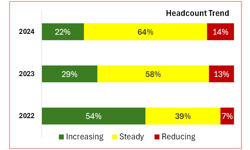Several weeks ago, I was in Moscow, filming a documentary about great cities of the world – what makes them tick, who makes them tick. I had last been in Russia’s capital 28 years previously, when I was serving in the British Embassy in the dark days of the Soviet Union.
Moscow’s transformation today knocked my socks off. But, it’s not my socks that I am here to talk about.
I revisited the old Embassy building on the banks of the Moscow River, in its splendid position opposite the Kremlin. It was a nostalgic moment – à la recherché du temps perdu. As I stood on the Embassy balcony, I recalled the moment when, in the autumn of 1984, my life had taken a radical turn.
Early dealings with the Press
It had been on this balcony that I was propositioned by our then Foreign Secretary, Sir Geoffrey – now Lord – Howe. I was minding my business as the chief of the Embassy’s political section, what in those days was called the Head of Chancery. Howe was on an official visit to Moscow. As we looked across at the Kremlin, its golden domes glittering magnificently in the setting sun, Howe asked me out of the blue whether I would like to be his Press Secretary. In my astonishment, I stuttered something about not being entirely clear what it was I would have to do. “You’ll find out soon enough,” was his tart reply. And, on that basis, I was hired.
There followed four thoroughly enjoyable years, in which I locked horns with the hacks on a daily basis and travelled with Geoffrey around the world.
Fast forward to 1993. I was minding my business in the Washington Embassy, this time as Deputy Head of Mission. Out of the blue the ‘phone rang. It was another proposition, this time from a seductive female voice in No 10. Would I like to be the Prime Minister’s Press Secretary and come to London for interview? Allowing vanity and ambition to get the better of me, I said ‘yes’. The Prime Minister was John Major and he had just entered what would prove to be the most difficult period of his premiership. On arrival in London, I was disconcerted to discover that I was the only candidate for the poisoned chalice. I was interviewed by Major in the Cabinet Room.
“Why do you want this job?” he asked with a note of incredulity, as if no sentient being could possibly want to do battle with the press on his behalf. “Because,” I said, rather pompously, “I enjoyed dealing with the Diplomatic correspondents, but the Lobby gives a more pungent smell of the press.”
“Pungent, pungent?” exclaimed Major with even greater incredulity. “You mean putrid!” And on that note I was hired. As I left the Cabinet Room, the man I was to succeed, Gus O’Donnell, was lurking in wait. He seized me, almost with handcuffs; and, in case I changed my mind, whisked me away to announce my appointment to the Lobby correspondents.
There followed two turbulent years, in which handling the press was akin to defending Rorke’s Drift, save that our perimeter was repeatedly over-run by hacks on the warpath.
I have given you these autobiographical gobbets, if only to explain my attitude to the press. I came away from six years’ hand-to-hand combat with both a pretty strong respect for the profession of journalism and no illusions about the demands and pressures it placed on reporters.
I learnt a few things too: that good journalism was not the preserve of the broadsheets, but was alive and well in the tabloids; that while television and the picture could have a powerful emotional impact on public opinion, press secretaries neglected the written word at their peril; that, per contra, politicians exaggerated the power of the headline to influence electoral choices and were needlessly obsequious to proprietors and editors; that while it was perfectly possible, even desirable, for politicians, special advisers and civil servants to enjoy friendly relations with journalists, the relationship was at heart adversarial – and if it was not, either the journalists were not doing their job or the briefers were naïve.
There was another, perhaps more important, lesson. Any government, even one in terminal decay like John Major’s in the mid-90s, had a significant in-built advantage over the press through its control of the public flow of official information. This advantage has not been eliminated by the Freedom of Information Act. It was not, therefore, difficult to move to the conclusion that any state regulation of the press was in principle offensive and that a free press was fundamental to a healthy democracy.
It was these beliefs and lessons that I took with me to my close encounter of the third kind with journalism, namely the Press Complaints Commission or PCC, where I spent six years as Chairman from 2003 to 2009.
Private vs Public
My time at the PCC was informed also by an experience that served as a warning of the very great difficulty that attends any effort to regulate the press.
When I took over from Gus O’Donnell at Downing Street in 1994, he bequeathed me a draft White Paper on a privacy law. It had already been the subject of extensive, but fruitless, Whitehall discussion. In the end, the draft was shelved. This was largely for political reasons, because the Prime Minister had no wish to antagonise proprietors and editors, who had set their face against a privacy law.
But, it had also proved impossible to reach an agreed definition across Whitehall, save at the broadest level of generality, of where the boundary lay between the private and public spaces – or, as some might put it nowadays, between Articles 8 and 10 of the Human Rights Act. It followed that if there was an unresolved debate over where to draw the line between what was private and what was public, there would by definition be an unresolved debate over what constituted the public interest.
The debate remains unresolved to this day. It is in fact beyond resolution. Witness last week’s row between the Information Commissioner, Christopher Graham, and the blogger, Paul Staines, a.k.a. Guido Fawkes, whether publication of the Operation Motorman files was in the public interest.
So, it was hardly surprising that, in my six years at the PCC, if the biggest source of public complaint was about accuracy, the most contentious discussions around the Commission table were about privacy – whether in news gathering or news reporting journalists had unjustifiably breached the privacy of a complainant. You might imagine that these debates would have split naturally between the independent or lay commissioners and the editorial commissioners. Far from it: there were no natural alliances on this or any other clause of the Editors’ Code of Practice, with editors often vehemently disagreeing with each other.
You might imagine also that, after two decades’ experience of ruling on privacy issues, the PCC would have been in a position to venture a comprehensive definition of the public interest; and to lay to rest once and for all the Manichean struggle between the Public and the Private. But, to this day, it has wisely declined to do so. The Editors’ Code of Practice does list those clauses, including that on subterfuge, which enjoy a so-called public interest exception. This allows for the clause’s suspension, if a matter being investigated by a reporter is deemed to be, or likely to be, of legitimate public interest. The Code illustrates the kinds of case, which might fall into this category. But, though general principles can be adduced, and refined over time, it has proved impossible to establish – in law, policy or at the PCC - an ex cathedra definition of the public interest, which both commands universal support and removes the need for a meticulous case-by-case approach.
I was roundly chastised recently by an MP on the Joint Committee on Privacy and Injunctions for suggesting that it might be beyond the wit of the House of Commons to define the public interest. She asked me if I thought MPs too stupid. I did not answer the question directly; but drew her attention instead to a famous case, when in 2004/05 the “super-model”, Naomi Campbell, sued Mirror Group Newspapers for breach of privacy. She won at first instance, lost at appeal, and won again on a split decision in the House of Lords. In other words, even the finest legal minds had divided down the middle on what constituted the public interest. The line between private life and public interest is doomed to be eternally controversial. Even a celestial regulator, assisted by the angels and archangels, with King Solomon thrown in, would be confronted by the same difficulties in coming to judgement.
As to the PCC, it has perhaps the largest body of “case law” on privacy in the UK. In 2008, my last full year as Chairman, the Commission ruled on around 400 privacy cases, far in excess of those that came before the courts. The figure today is, I believe, at least 500. Whatever regulatory structure may emerge from the Leveson Inquiry, it would be self-mutilating vandalism on the grand scale – and a dereliction of duty to the thousands who come to the PCC for help each year - if the jurisprudence accumulated over two decades around privacy and the other clauses of the Code of Practice were to be discarded.
Earlier this year, when I appeared before the Leveson Inquiry, the leading counsel, the very able Mr Robert Jay QC, sought to insinuate that a belief in self-regulation and freedom of the press must of necessity lead to an indulgent view of newspapers’ misbehaviour and bad practice. Of course, as I tried to get over in four and a half hours of perversely enjoyable jousting, the opposite is true. The stronger your belief in freedom of the press, the more determined you have to be to ensure that there can be no grounds for an argument in favour of statutory regulation.
Misconceptions about the PCC
But, here is an interesting thing, which, I confess, only struck me after I had become the PCC’s Chairman. One of the misconceptions underlying the debate about regulation is that the British press has been governed by a system of self-regulation, though that is the name habitually given to it for want of a better. Strictly speaking, the press has never been governed by self-regulation. It has never been a case of journalists simply pronouncing judgement on journalists. From its very inception, the Board of Commissioners of the PCC – the moral heart of the whole operation, where the rulings are made – has enjoyed a majority of independent commissioners over editorial.
The press is in reality regulated by a hybrid system, of which the PCC is only one part. This goes for the media as a whole. The BBC, for example, is regulated by Ofcom, a statutory body, and its own Trust. The press is regulated by the PCC, the courts (controversially in some privacy cases) and a number of laws that constrain its freedom - the Data Protection Act and the Regulation of Investigatory Powers Act, to name but two. It was, of course, under the latter that Messrs Goodman and Mulcaire were sent to gaol for phone-hacking in 2007.
This very important point invites another view of phone-hacking: namely, that the hybrid system of press regulation dealt with the affaire exactly as it was meant to do. In 2006 and 2007 a crime was investigated, a successful prosecution was mounted, two men went to gaol, an editor resigned, and, after the trial, the regulator – the PCC – launched an inquiry, on the basis of which it published a widely-welcomed report that established new rules for the use of subterfuge by the press. Even the redoubtable Professor Roy Greenslade of the Guardian was moved to say complimentary things about the 2007 report.
Of course, this begs the question whether the police investigation at the time was sufficiently thorough. But, that is a separate matter. Today, at vast cost, the police have reopened their inquiries and are examining among many other things whether there was a criminal conspiracy at the heart of News International to conceal the extent of phone-hacking at the now defunct News of the World.
You have probably already spotted my direction of travel and are muttering to yourselves Mandy Rice-Davies’ immortal words: “he would say that, wouldn’t he?” But, there remains a fundamental question to be answered, and it is this. What has a non-statutory regulator of the press, namely the PCC, got to do with a possible criminal conspiracy? After all, no less an authority than the Lord Chief Justice said in a speech last October at the Human Rights Law Conference that:
“To criticise the PCC for failing to exercise powers it does not have is rather like criticising a judge who passes what appears to be a lenient sentence, when his power to pass a longer sentence is curtailed.”
These may be the wisest words uttered since the inception of the Leveson Inquiry. But, if the deduction to be made from them is that the PCC, or whatever its successor is called, should be given the kind of powers to which the Lord Chief Justice was referring, then the greatest caution is required. If we are not careful, we shall find ourselves slithering rapidly down the slippery slope to state regulation of the press. It cannot be the business of a non-statutory regulatory body, whether the PCC or its successor, to enforce the criminal law. It would be like giving a Police Community Support Officer powers of arrest without the warrant.
It was a well-established principle at the PCC that where the Code of Practice overlapped with the law – and it does at a number of its articles – precedence must always be given to investigations and prosecutions by the police and the Crown Prosecution Service; just as litigants had to choose between going to law or seeking redress at the PCC. They could not do both.
After the trial of Messrs Goodman and Mulcaire in 2007, the question for the PCC was not therefore: why had it not spotted this malfeasance in the first place and dealt with it; but whether, after the police and Crown Prosecution Service had done their work, there was anything further for the PCC to do (there was, as I have described). To argue otherwise is to seek to confer on the PCC powers of investigation tantamount to those of the police, such as the authority to take sworn statements. This would, in my view, be utterly objectionable in principle, since these powers could surely be granted only by statute; and a line would have been crossed into state regulation of the press. Yet, as the Lord Chief Justice has pointed out, the PCC has been roundly and wrongly condemned for not having precisely these powers.
The PCC certainly needs more powers and more independence in a process of continuing evolution. I have set out some ideas in my witness statement. But, the plain truth is that the phone-hacking scandal is neither useful nor even relevant to this process. Is there any proposal for press regulation, which has come before Leveson, short of appointing a commissar in every news room with x-ray eyes and telepathic powers, that would have nipped phone-hacking in the bud?
A curious beast
The Inquiry, with its elements of show trial, seminar and truth commission, is a curious beast. It runs in parallel with at least three police investigations looking into similar matters. No wonder there are anxieties among the police and those arrested that the proceedings of the Inquiry might damage or prejudice their respective interests. As a formal judicial inquiry, it eclipses in legal standing the unfinished Chilcot Inquiry into the origins and conduct of the Iraq War, a much more important subject.
Lord Justice Leveson was careful in his opening remarks last year not to make any commitment as to the future regulation of the press. But he has made it pretty clear that something new is coming. Editors expect it. Lord Hunt, the PCC’s current Chairman, expects it; and has been working up proposals to help Lord Justice Leveson in his deliberations. You cannot emerge from Court 73 at the Royal Courts of Justice without the clear impression that the fundamental premise of the proceedings is that the current system of regulation is broken, has lost the confidence of the public and needs to be replaced. (If this proves not to be the case, I will, with the permission of the Master, eat my socks in the Company’s courtyard.)
One can only lament the absence from Lord Justice Leveson’s panel of Assessors of a current or former independent Commissioner, who actually knows how the PCC works from the inside. If the PCC were a broken enterprise, how come business has been booming? In 2002, just before I assumed the chairmanship, 2,630 people had used the PCC’s services. By the time I had left, the figure had almost doubled. In 2010, the last year for which the PCC has published an annual review, the figure had risen to over 7,000, with around 100 successful interventions to stop harassment. The Commission has just published a statistical digest of those who have used its services in the first quarter of this year. It shows an average satisfaction rate of almost 82%. Politicians will sell their grandmothers into white slavery for numbers like that.
This is a system that cries out to be developed and strengthened, not abolished.
Above all, these figures do not describe a body in which the public has lost trust (though heaven knows what it thinks now after the parade of the weird and wonderful before the Inquiry). But, when I sought to make some of these points in Court 73, I have to say that there was a glazing of the eye from the inquisitor, a flare of irritation from the bench.
So, to quote Lenin (still in his mausoleum on Red Square, by the way), “What is to be done?”
Well, we are where we are. We are told that the PCC is to be closed down, though this sentence of death appears to contain a Lazarus clause, allowing its rebranded resurrection. We cannot wish away the Leveson Inquiry. After the expenditure of huge sums of public money, it will be expected to come up with a result; and that result will be a hugely important moment for our freedoms and for our democracy, already under multiple pressures.
Peter Preston, the veteran media commentator and former editor of the Guardian, wrote the other day about press regulation that “Another stab at reinvention risks bringing back the worst characteristics of previous regimes.” If Lord Justice Leveson is to avoid that fate, he should, I would submit in all humility, ensure that any new regulatory system meets five tests:
1. That it is more independent from its paymasters than its predecessor (assuming that the newspaper and magazine industry continue to be the source of finance). The industry appears to be content with that notion.
2. That, if fines and binding contracts are to be introduced, armies of lawyers do not follow in their wake. Fair play, as the footballers say, to the legal profession, but if press regulation is to be embraced by the tendrils of the law, you will have to redraft the old PCC slogan: “Free, Fast and Fair”.
3. That ordinary people across the UK, who lay no claim to celebrity or public notoriety, are not forgotten in what has been so far a largely metropolitan debate between elite groups. The PCC has been above all a public service that has helped tens of thousands of citizens around the country. The complaints, pre-publication, anti-harassment, educational and training services of the PCC must be placed at the core of any new edifice.
4. That it is fit to confront the challenge of the internet and look at regulation through digital eyes. There is a great danger in this Inquiry of generals fighting the last war. So much of what has been said to Leveson, so many of the characters who have paraded before him, are so yesterday, so pre-digital. The ambition of some to regulate the blogosphere is a fool’s errand. There will always be content on the internet beyond the reach of law and regulation. But, nil desperandum. Editors already have to take responsibility for content imported from an unregulated blog. On my watch, the PCC extended its competence to online editions of newspapers, including their audio-visual material. The next stage is to help punters, engulfed by a torrent of digital information, to distinguish between what is trustworthy and what is not. We need to look at regulation as a visible and commercially attractive seal of quality that tells readers and viewers that what they consume meets certain standards and that there are remedies when it falls short.
5. That it is infused with the understanding that a core freedom is at stake, one so precious that in the United States, it is protected by the First Amendment to the Constitution. I was speaking at the Law Faculty of the University of North Carolina a couple of weeks ago. People were stunned that an inquiry, set up by the government and reporting to the government, should have any say at all on the boundaries of freedom of expression. This is why there is this muddled debate whether the PCC is a regulator or not. Of course, it is a regulator; but a regulator like none other. This is because freedom of speech is not chartered accountancy or the practice of law or medicine. The original insight of Sir David Calcutt, the progenitor of the PCC, was to raise journalistic standards through a complaints process framed by a permanently evolving Editors’ Code of Practice. That is exactly what has happened over the past two decades.
The Leveson Inquiry embraces so much more than phone-hacking and regulation, deliberately so. One wonders whether the remit is too wide, too ambitious for one judge and one inquiry. Court 73 has become a hot-house for debate around: ethics and standards in the media; the alleged breakdown in trust between government and governed; the claustrophobic, incestuous relationship between politicians and journalists, between journalists and the police; media ownership; and even the nature of democratic society itself. A thousand flowers, and not a few weeds, bloom in the rich haul of witness statements.
Here and there a whiff of totalitarianism arises from the foliage. Some witnesses appear animated by the idea that there is such a thing as Truth with a capital T. There may well be, but we humans have only the most partial and imperfect access to it. In reality, we live in a world of fiercely competing ideas and “truths”.
This does not absolve journalism from its duty of accuracy. But, absolute objectivity is another matter. With governments, there is no policy without politics and no politics without spin. With journalism there is no such thing as a newspaper of record, since that immediately poses a series of questions: whose record? Whose news values? Whose priorities? Whose judgements? One of the great strengths of British journalism, and of British democracy itself, is the campaigning partisanship of its newspapers.
So, if I may be allowed a public postscript to my witness statement, it would be to say this to Lord Justice Leveson: beware those, who, flying the flag of objectivity, want to impose their version of the truth. That would cast open the door to the enemies of the Open Society, against whom the eminent philosopher and thinker, Sir Karl Popper, warned us more than half a century ago. Indeed, as the Lord Justice burns the midnight oil, writing his report to the government, he could do worse than add the shade of Professor Popper to his panel of Assessors.
Thank you.










